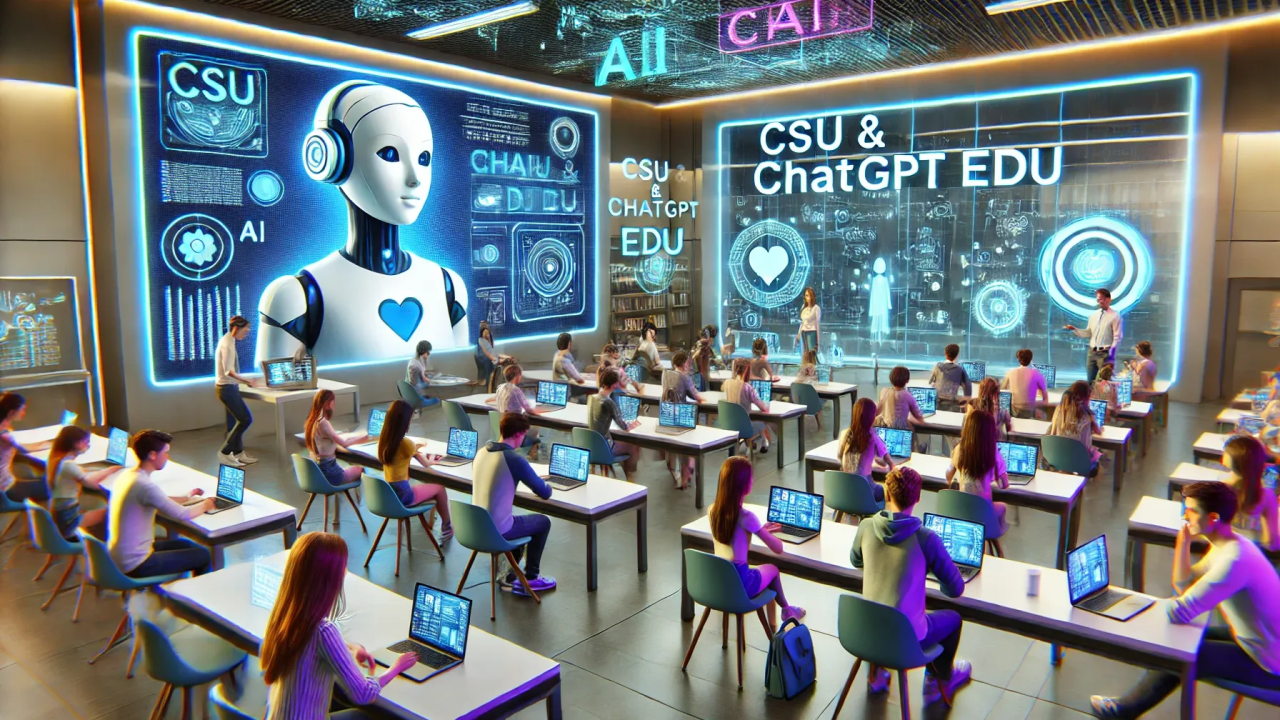Smarter Not Harder: CSU Becomes the first US University System to Integrate AI with Learning
By Kelli Luu | 09 Apr, 2025
AI tools let students succeed by leveraging new tools for productivity or fail by letting them deleverage their personal input.
The California State University system recently announced that every student, professor, and staff member will now have complete, free access to ChatGPT. What was once a cheating shortcut and the quickest way to get a plagiarism fail on a paper has now been fully rebranded as an official learning tool on all 23 CSU campuses.
For Asian American students like me this is a total game-changer.
Pursuant to its February 4, 2025 announcement that it will become the nation’s first AI-integrated university system, CSU has formed cutting-edge partnerships with tech giants like Google, Adobe, Microsoft, and of course, OpenAI.
Its wide-ranging AI rollout allows CSU to guarantee every student and faculty member — regardless of major, background or tech-savvy — full integration into a new era of efficient access to knowledge and ways to apply that knowledge to find solutions.
As part of a push to create more advanced tools specifically designed for educational institutions CSU is currently working with OpenAI to develop ChatGPT Edu. It also goes beyond the industry-standard ChatGPT platform to introduce tools like LinkedIn Learning and Microsoft Copilot. The resulting array of tools includes everything from career-boosting circuits — curated learning courses that help students prepare for the job world — to coding assistants.
As of the Fall 2024 semester CSU had nearly 14,000 international students enrolled. Their immersion in a new culture and campus experiences makes these students especially appreciative of AI tools, using them to translate instructions for class assignments or sharing emails from faculty with non-English-speaking parents.
AI is also helping staff and faculty engage in more meaningful encounters with international students. Counselors will be able to easily explain financial aid requirements and offerings, and professors can create course syllabi in multiple languages in seconds.
Some see CSU’s embrace of AI as a free pass to offload the hard work. But the university is merely trusting professors to adjust their evaluation methods to focus more precisely and intentionally on recognizing student effort and initiative. For example, we may see more focus on in-class participation, leadership in discussions and other evidence of creative thinking — work AI can’t replicate.
Students who see AI tools as crutches aren’t likely to benefit from this latest enrichment to their learning environment. Those who recognize AI as another way to leverage their ambition and creativity will likely find themselves excelling in this new age of amplified human potential.
Those who recognize AI as another way to leverage their ambition and creativity will likely find themselves excelling in this new age of amplified human potential.

Articles
- Volvo's Fully Electric Cars Shine Against Overall Sales Slump
- Mitsubishi Heavy to Enjoy Record Year on Japan's Nuclear Reactor Restarts
- Beijing Plans to Scale Up AI, Humanoid Robotics and Space-Faring Capabilities
- US to Raise Tariffs to 15% This Weeks
- Apple Debuts $599 MacBook Neo to Challenge Chromebook, Windows PCs
Asian American Success Stories
- The 130 Most Inspiring Asian Americans of All Time
- 12 Most Brilliant Asian Americans
- Greatest Asian American War Heroes
- Asian American Digital Pioneers
- New Asian American Imagemakers
- Asian American Innovators
- The 20 Most Inspiring Asian Sports Stars
- 5 Most Daring Asian Americans
- Surprising Superstars
- TV’s Hottest Asians
- 100 Greatest Asian American Entrepreneurs
- Asian American Wonder Women
- Greatest Asian American Rags-to-Riches Stories
- Notable Asian American Professionals

